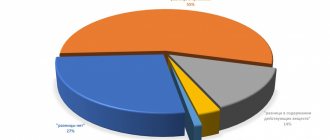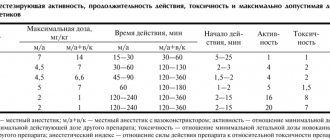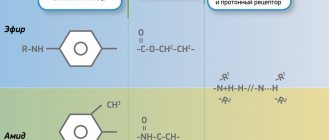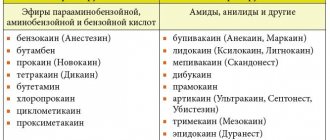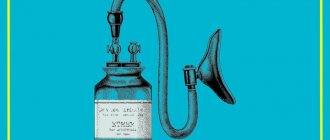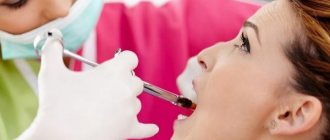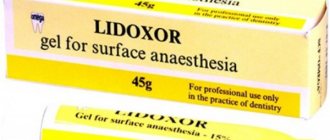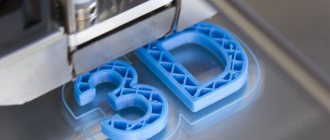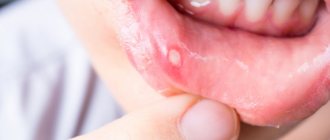The topic of anesthesia in dentistry is one of the most discussed, since its use allows most dental procedures to be performed painlessly for the patient. However, treatment involving serious interventions (treatment of pulpitis, tooth extraction, prosthetics) is significantly complicated if the patient is allergic to anesthesia.
According to experts, allergic reactions, hypersensitivity to the components of the drug occur in 15-20% of patients. Allergies have different causes and manifestations, and accordingly, the solution in each situation must be individual.
Allergy to anesthesia in dentistry: main types
The reaction to anesthesia has 3 different development mechanisms:
- allergic;
- toxic;
- psychogenic.
Allergies directly to an anesthetic drug are extremely rare, difficult to diagnose, and have a cumulative nature. As a rule, the reaction occurs after the 2-5th application of the anesthetic and is manifested by both local and generalized symptoms (urticaria, edema, anaphylactic shock).
Most often, an allergy occurs not to the anesthetic itself, but to the excipients that are present in it or in the packaging (latex, parabens, bisulfites that prevent the oxidation of active ingredients). As a result, the patient experiences a toxic reaction to dental anesthetics and is the most common.
The psychogenic type of allergy is not a problem of somatic origin. It is associated with the patient’s fear of dental procedures and increased anxiety. The most common psychosomatic reaction to local anesthesia is fainting after injection.
What allergy medications are there?
Medicines used to prevent and relieve allergy symptoms are called antihistamines. Their mechanism of action is to block the production of histamine, a chemical that is normally present in the human body, is involved in immune processes and regulates various physiological functions. When an allergen enters the body, a large amount of histamine is released. This leads to an inflammatory response that manifests itself as allergy symptoms. In order not to harm yourself and restore the normal state of the body as quickly as possible, it is important to know which allergy medicine can be used and what the features and differences are between the presented drugs. There are three generations of antihistamines.
How does an allergy to local anesthesia manifest: symptoms
Symptoms depend on the mechanism of allergy development. With a contact allergy, the patient experiences:
- itching;
- burning;
- development of allergic stomatitis;
- edema.
An allergy to the components of the drug can cause a reaction in the skin, respiratory system, or cardiovascular system. In severe cases of allergies, anaphylactic shock may develop.
Symptoms:
- tingling of the facial skin;
- general weakness;
- the appearance of chest pain.
In the absence of timely medical care, swelling of the respiratory tract begins, heart failure, and convulsions develop.
A toxic reaction differs from an allergy in both its symptoms and the nature of its effect on the body. Anesthetic drugs contain vasoconstrictor components.
How does an allergy to anesthesia manifest itself with increased vascular permeability, direct contact with a needle into a blood vessel when the anesthetic is administered:
- acceleration/deceleration of heartbeat;
- dizziness;
- lethargy;
- decreased visual acuity;
- noise in ears.
Allergy to dental anesthesia: causes
The most common causes of allergies to local anesthetics:
- hypersensitivity to anesthetic drugs;
- vegetative-vascular diseases;
- hereditary factor;
- incorrect dosage calculation;
- intravascular injection;
- psychoneurological disorders.
Hypersensitivity to local anesthetic drugs
In dentistry, multicomponent drugs are used for local anesthesia. The main active ingredient in them, as a rule, does not have side effects in the form of allergies, and complications are associated with excipients in the solution.
If the body is sensitive to individual components of anesthesia drugs, dentistry uses painkillers with the most simplified composition.
Second generation drugs
2nd generation antihistamines have a wider spectrum of action, practically do not cause drowsiness, and if the dosage is observed, the development of side effects is minimized. The effect of the drug lasts up to 24 hours. Not addictive. However, due to the nature of their action, they can disrupt the heart rhythm. There is a risk of developing individual intolerance. This group includes effective drugs: fenistil, claritin and histalong.
- Fenistil. Available in the form of a gel, emulsion and drops, which makes the drug universal for administration. Gel and emulsions can be applied to the skin to eliminate an allergic reaction, local cooling and anesthesia, which is especially effective for insect bites or skin itching that occurs after contact with an allergen.
- Claritin. It is considered the safest of the second generation drugs and is therefore widely used. Does not cause drowsiness or decreased concentration. Can be used by both adults and children (from 3 years old). Can be used for long-term use. Should be taken with caution in the presence of liver dysfunction.
- Gistalong. It has the longest therapeutic effect of the second generation drugs. Can be used to treat chronic allergic processes. Despite the positive qualities of the drug, it cannot be used for heart rhythm disturbances. Not recommended for children and elderly people.
How do you know if you are allergic to anesthesia?
For diagnostic purposes, a blood test for allergies to anesthesia is performed (allergy tests). This test is performed as prescribed by an allergist or dentist. The direction indicates the drugs for which the study should be carried out.
Indications for allergy testing:
- there have previously been cases of an allergic reaction to local anesthesia in dentistry;
- the patient is allergic to any drug;
- before dental treatment, if a person has symptoms such as cough, urticaria and itching of the skin, lacrimation for no known reason.
The analysis does not require preliminary preparation or adherence to the “fasting” rule. However, you should not take antihistamines before taking samples. The analysis is not carried out during periods of acute infectious diseases, exacerbation of chronic diseases, at elevated temperatures, during pregnancy and for several weeks after delivery or termination of pregnancy.
Symptoms
Signs of allergies are presented in the following list:
- Changes in taste sensations - when eating food, a bitter, sour or metallic taste appears, which is not characteristic of cooked dishes;
- Burning sensation in the mouth or tongue;
- Excessive salivation or, conversely, complete dry mouth;
- Inflammation of the mucous membrane, tongue and gums: swelling, redness, the appearance of small ulcers and bleeding;
- Electrical discharges in the oral cavity, due to the presence of two or more metal alloys in the filling unit;
- Redness and swelling of the eyelids, nose, lips, cheeks, accompanied by a sore throat.
These are the most common reactions of the body to low-quality filling and orthodontic preparations.
Allergy to anesthesia in children
Recently, there has been a tendency to increase the number of cases of diagnosing various types of allergies in children. When using local anesthesia in children with allergies in dentistry, there is a higher risk of developing an allergic reaction and various complications. Therefore, special attention is paid to the choice of local anesthetic for a child in dentistry.
Let's tell you how we solve this problem at the Amel Smart clinic:
- The clinic employs experienced anesthesiologists who advise and help choose the safest method of pain relief for the child;
- In addition to classical anesthesia, we use computer anesthesia and sedation in pediatric dentistry;
- a note about allergies is placed in the baby’s medical record;
- all clinic staff have been trained and are ready to provide professional emergency assistance at any time;
- Each room is equipped with a kit necessary to provide first aid for anaphylactic shock.
In most cases, dental treatment in pediatric dentistry is carried out without pain relief. But for large problems that require serious intervention, pain relief cannot be avoided. In this case, pediatric anesthesia is used, and during dental procedures, an anesthesiologist is constantly present in the office to monitor the main indicators of the child’s condition.
Dental treatment for allergies to anesthetics
Today, it is possible to choose the optimal method of pain relief in dentistry for each patient. In this case, many factors are taken into account: the complexity of treatment, the tendency to allergies and the presence of hypersensitivity to specific drugs, the general condition of the patient.
In the case of drug allergies, whenever possible, treatment is carried out without pain relief. For serious interventions, the doctor selects the drug for anesthesia, taking into account the patient’s existing contraindications (modern dentistry can offer a large selection of safe anesthetics). Nowadays, it is quite common practice that in dentistry, before treatment, tests are carried out for allergies to anesthesia drugs, which allow you to choose a safe solution for pain relief and eliminate the risk of complications. In rare cases, when it was not possible to select a drug for local anesthesia, dental treatment can be performed under anesthesia.
To avoid a toxic reaction, changing the anesthetic or abandoning local anesthesia is not required. The doctor uses a special needle insertion technique called a "blood test" that prevents the drug from being injected directly into the blood vessel.
In addition, Amel Smart uses hardware anesthesia, which has many advantages:
- performing different types of anesthesia;
- the most accurate dosage of the drug;
- precise determination of the injection site;
- painlessness of the procedure.
For patients with a psychosomatic reaction to anesthesia, injections of the drug are given in a lying position. If the patient is very afraid or experiences severe psychological discomfort from being in the clinic or the upcoming manipulations, he is offered treatment with sedation (medicated sleep).
First aid for allergies to local anesthesia
If a patient experiences an allergy attack due to anesthesia, the dentist has an emergency kit in his office for such an event. It includes antihistamines, antishock drugs, antispasmodics, adrenaline, syringes, alcohol, venous catheter and tourniquet, gauze, cotton wool, saline solution. Every dental specialist has the skills to provide first aid to patients before the ambulance arrives.
Treatment of allergies to anesthetic in dentistry includes standard measures used in the treatment of allergic diseases:
- 1
Elimination of the provoking factor. - 2
Antihistamine therapy.
- 3
Preventive therapy.
Third generation drugs
If you have an allergy, you should always have antihistamines in your home medicine cabinet.
Officially, third-generation drugs have not yet been developed, however, unofficially, improved second-generation drugs are included in this group. This group is characterized by a rapid onset of action and high efficiency. The drugs have fewer side effects. Individual intolerance is possible. They can be used both to relieve allergy symptoms and for long-term treatment of the disease. They do not affect heart rate. The best third-generation drugs include Cetrin, Erius, Xizal, and Fexofen.
- Cetrin. Available in the form of tablets (contraindicated in children under 6 years of age) and in the form of syrup (contraindicated in children under 2 years of age). The effect lasts up to 24 hours. Effective in the development of edema. Syrup as part of complex therapy relieves spasms in bronchial asthma. It has virtually no contraindications. Should be used with caution in elderly people.
- Erius. Available in the form of tablets (contraindicated in children under 12 years of age) and syrup (contraindicated in children under 1 year of age). It works almost immediately. Duration of action is up to 24 hours. Relieves and prevents the development of allergy symptoms. Should be taken with caution in case of renal failure
- Xizal (Zodak). Available in the form of tablets and drops. Has an anti-inflammatory effect. Quickly eliminates itching, swelling and redness. The effect of the drug is observed for up to 2 days. Contraindicated in renal failure. Not suitable for use by children under 6 years of age.
- Fexofen (Allegra, Fexofast). Effectively eliminates allergy symptoms, especially with seasonal rhinitis. The effect lasts for 12 hours. Can be used as prophylaxis. Not suitable for use by children under 12 years of age.
Prevention of allergic reactions: recommendations from Amel Smart specialists
To avoid unwanted reactions and complications from the use of anesthetic in dentistry, you must follow a number of rules:
- if you have an allergy to painkillers or other types of allergies, you must inform your doctor about it before starting treatment;
- information about allergies must be in the patient’s medical record;
- To diagnose intolerance to anesthetics, the dentist prescribes an anesthesia allergy test for the patient;
- Having information about the type of allergy, the doctor does not use drugs containing the allergen in the treatment of the patient;
- if premedication is necessary for patients with allergies, the anesthetic drug is combined with antihistamines, and in some cases with hormonal anti-allergy drugs.
If you suspect an allergy, it is advisable to consult an allergist before going to the dentist. Having information about intolerance to certain components, experienced doctors at the Amel Smart dental clinic will select the safest solution to the patient’s problem.
This Personal Data Privacy Policy (hereinafter referred to as the Privacy Policy) applies to all information that (hereinafter referred to as the company), whose website is located on the domain name linedent.ru, can receive about the User while using the website, programs and products of the company.
DEFINITION OF TERMS
1.1. The following terms are used in this Privacy Policy: 1.1.2. “Personal data” - any information relating to a directly or indirectly identified or identifiable individual (subject of personal data). 1.1.3. “Processing of personal data” - any action (operation) or set of actions (operations) performed using automation tools or without the use of such means with personal data, including collection, recording, systematization, accumulation, storage, clarification (updating, changing), extraction, use, transfer (distribution, provision, access), depersonalization, blocking, deletion, destruction of personal data. 1.1.4. “Confidentiality of personal data” is a mandatory requirement to not allow their dissemination without the consent of the subject of personal data or the presence of another legal basis. 1.1.5. “Site User (hereinafter referred to as the User)” is a person who has access to the Site via the Internet.
GENERAL PROVISIONS
2.1. Processing and ensuring the security of Data is carried out in accordance with the requirements of the Constitution of the Russian Federation, the Law, the Labor Code of the Russian Federation, by-laws, and other federal laws of the Russian Federation defining cases and features of Data processing. 2.2. The User’s use of the website linedent.ru means acceptance of this Privacy Policy and the terms of processing of the User’s personal data. 2.3. In case of disagreement with the terms of the Privacy Policy, the User must stop using the site linedent.ru 2.4. This Privacy Policy applies only to the website linedent.ru The Company does not control and is not responsible for third party websites that the User can access via links available on its website. 2.5. The site administration does not verify the accuracy of the personal data provided by the site user.
SUBJECT OF THE PRIVACY POLICY
3.1. This Privacy Policy establishes the obligations of the Site Administration to non-disclose and ensure a regime for protecting the confidentiality of personal data that the User provides at the request of the Site Administration when registering on the site or when placing an order for the purchase of Services. 3.2. Personal data permitted for processing under this Privacy Policy is provided by the User by filling out the registration form on the Website linedent.ru and includes the following information:
3.2.1. last name, first name, patronymic of the User; 3.2.2. User's contact phone number; 3.2.3. email address (e-mail). 3.3. The Company protects Data that is automatically transmitted during viewing of advertising blocks and when visiting pages on which the system’s statistical script (“pixel”) is installed:
IP address; information from cookies; information about the browser (or other program that accesses advertising); access time; address of the page on which the advertising unit is located; referrer (address of the previous page).
3.3.1. Disabling cookies may result in the inability to access parts of the site that require authorization. 3.3.2. The company collects statistics about the IP addresses of its visitors. This information is used to identify and resolve technical problems. 3.4. Any other personal information not specified above is subject to secure storage and non-distribution, except for the cases provided for in paragraphs. 5.2. and 5.3. of this Privacy Policy.
PURPOSES OF COLLECTING USER'S PERSONAL INFORMATION
4.1. The Site Administration may use the User’s personal data for the following purposes: 4.1.1. Identification of the User registered on the website for placing an order and (or) concluding an Agreement. 4.1.2. Providing the User with access to personalized resources of the Site. 4.1.3. Establishing feedback with the User, including sending notifications, requests regarding the use of the Site, provision of services, processing requests and applications from the User. 4.1.4. Determining the location of the User to ensure security and prevent fraud. 4.1.5. Confirmation of the accuracy and completeness of personal data provided by the User. 4.1.6. Creating an account if the User has agreed to create an account. 4.1.7. Providing the User with effective customer and technical support if problems arise with the use of the Site. 4.1.8. Providing the User with his consent, information about prices, newsletters and other information. 4.1.9. Carrying out advertising activities with the consent of the User. 4.1.10. Providing the User with access to partner sites or services in order to receive products, updates and services.
METHODS AND TERMS OF PROCESSING PERSONAL INFORMATION
5.1. The processing of the User's personal data is carried out without a time limit, in any legal way, including in personal data information systems using automation tools or without the use of such tools. 5.2. The User agrees that the Site Administration has the right to transfer personal data to third parties, in particular, courier services, postal organizations, telecommunication operators, solely for the purpose of fulfilling the User’s order. 5.3. The User’s personal data may be transferred to authorized government bodies of the Russian Federation only on the grounds and in the manner established by the legislation of the Russian Federation. 5.4. In case of loss or disclosure of personal data, the Site Administration informs the User about the loss or disclosure of personal data. 5.5. The site administration takes the necessary organizational and technical measures to protect the User’s personal information from unauthorized or accidental access, destruction, modification, blocking, copying, distribution, as well as from other unlawful actions of third parties. 5.6. The site administration, together with the User, takes all necessary measures to prevent losses or other negative consequences caused by the loss or disclosure of the User’s personal data. 5.7. The site administration warns in advance about a change of site owners so that the User can delete his account and his personal data.
OBLIGATIONS OF THE PARTIES
6.1. The user is obliged to: 6.1.1. Provide information about personal data necessary to use the Site. 6.1.2. Update, supplement the provided information about personal data if this information changes. 6.2. The site administration is obliged to: 6.2.1. Use the information received solely for the purposes specified in clause 4 of this Privacy Policy. 6.2.2. Ensure that confidential information is kept secret, not disclosed without the prior written permission of the User, and also not sell, exchange, publish, or disclose in other possible ways the transferred personal data of the User, with the exception of paragraphs. 5.2. and 5.3. of this Privacy Policy. 6.2.3. Take precautions to protect the confidentiality of the User's personal data in accordance with the procedure usually used to protect this type of information in existing business transactions. 6.2.4. Block personal data relating to the relevant User from the moment of application or request from the User or his legal representative or the authorized body for the protection of the rights of personal data subjects for the period of verification, in the event of detection of unreliable personal data or unlawful actions.
ADDITIONAL TERMS
7.1. The site administration has the right to make changes to this Privacy Policy without the consent of the User. 7.2. The new Privacy Policy comes into force from the moment it is posted on the Site, unless otherwise provided by the new edition of the Privacy Policy. 7.3. Any suggestions or questions regarding this Privacy Policy should be reported to 7.4. The current Privacy Policy is located on the page at
